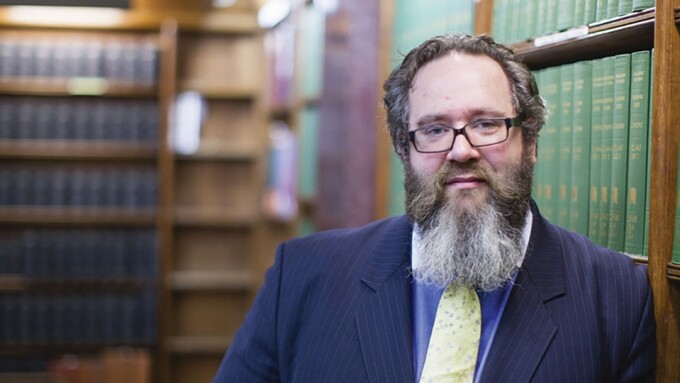LONDON — U.K. attorney Myles Jackman will discuss the importance of legal action in the fight to defend digital rights at a meeting sponsored by the Open Rights Group on Wednesday, Jan. 24.
Jackman, who also is the London-based organization’s legal director, will focus on fast-approaching challenges that adult website owners will face once the U.K.’s Digital Economy Act’s new age-verification law goes into effect in May.
He’ll also dive into the discussion over the government’s new mass surveillance program and the topic of protecting free speech online.
“No experience or knowledge is necessary for this free event,” the Open Rights Group said. “All you need is an interest in protecting our human rights in the digital era. We want to hear from you, so there will be plenty of time for questions and group discussion.”
The discussion, taking place at the Newspeak House in London, comes after recent revelations that the U.K.'s new age-verification laws could encourage risky online behavior for those who seek out porn.
The U.K. government, in a new report, “Particulars of Proposed Designation of Age-Verification Regulator,” noted that enforcing age checks for online porn sites also could be detrimental to smaller ISPs and significantly increase fraud.
The Digital Economy Act will require U.K. residents to prove they are 18 or over in order to get access to porn sites.
The rules will be enforced by the British Board of Film Classification in its new role as age-verification regulator, which will also allow it to require ISPs to block sites that don't comply. The BBFC has yet to fully iron out all the details of its new role, like what "blocking" will entail and protocols on an appeals process.
In the new report, the U.K. government said that some users might be headed to the dark web in search of their decided porn niche.
"[A]dults, and some children, may be pushed towards using ToR and related systems to avoid age verification where they could be exposed to illegal and extreme material that they otherwise would never have come into contact with," the report said.
For smaller ISPs, with smaller staffs, blocking large number of sites likely will be problematic and costly. Some type of automation would need to be developed and deployed, and some sites likely would be mistakenly filtered out, the report said.
As for potential fraud, the U.K. government said in the report that "the potential for online fraud could raise significantly, as criminals adapt approaches in order to make use of false age-verification systems/spoof websites and access user data.”
Jackman over the weekend commented on the latest report on findings of the Digital Economy Act, noting that the government has taken a hypocritical line.
"It seems perverse that, in an environment where the government is promulgating anti-extremism and saying terrorists must be stopped from using ToR, it has to openly acknowledge that this policy will increase its use," Jackman told the Register.
Open Rights Group’s “Digital Rights in the Courts in 2018” will be held on Wednesday, Jan. 24, at 7 p.m. at Newspeak House, 133-135 Bethnal Green Rd., E2 7DG, London.
Pictured: Myles Jackman






